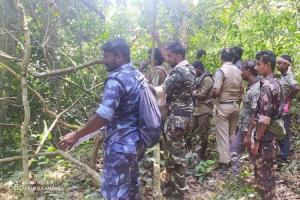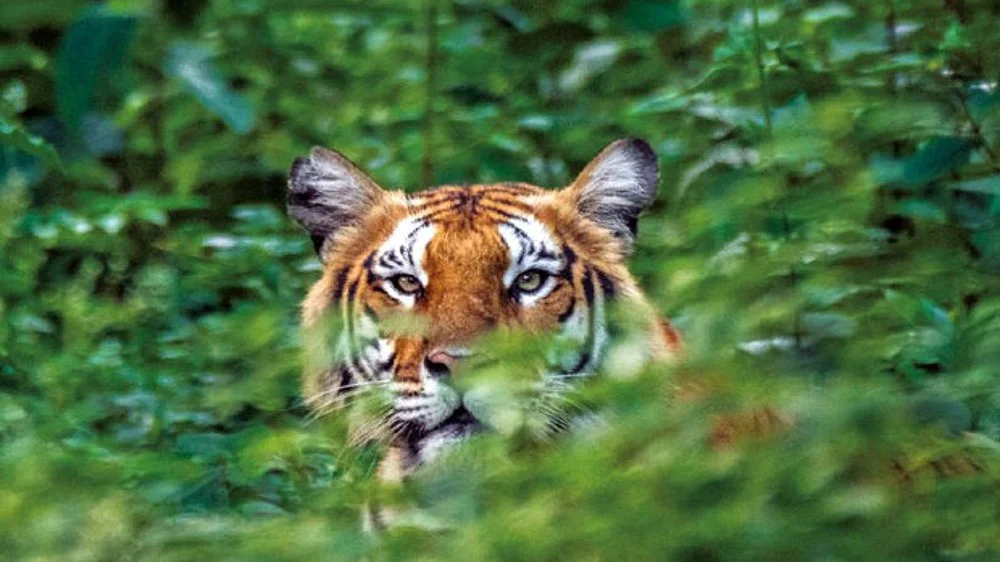
Chennai, Feb 21 (IANS)
There is a mixed response to the night travel ban imposed in the 22 km stretch of road from 6 pm to 6 am through the Dhimbam ghat road passing through the Satyamangalam Tiger Reserve (STR) in Erode district.
The Tamil Nadu government was forced to implement the ban after the Madras High court came out heavily against the state motor transport and forest departments not executing the order of the then Erode district collector in 2019 not to allow vehicles through this ghat road at night.
While animal and wildlife activists are happy at the ban, the farmers and tribal movement leaders are of the opinion that the ban was affecting the free movement of vehicles.
The ban was implemented on February 10, 2022, and a circular was issued by the Chief conservator of Forests and Field Director of STR based on the Madras High Court order and on the Gazette notification of the Erode District dated January 7, 2019. The restrictions on vehicular movement is from 6 pm to 6 am for commercial vehicles and for light commercial vehicles and four-wheelers it is from 9 pm to 6 am.
R. Aravindan of Chennai environmental society while speaking to IANS said, “Satyamangalam Forest Reserve is home to more than 40 tigers and at night the big cats come out of the forests and cross the road, the vehicular traffic was a hindrance to this and accidents are common. Other than tigers, sloth bears, elephants, spotted dears and other animals are common prey to speeding vehicles and hence this ban is good for the environment and wildlife. All-natural and animal lovers welcome the ban.”
However, the farmers of the area are totally against the ban and the tribal leaders also said that they are cut off from the rest of the world due to the night ban.
P.R. Pandian, Erode district farmers association leader while speaking to IANS said, “ The night ban is creating problems for the farmers as our produce has to move out of the Dhimbam ghat road before 6 pm which means we have to load the vegetables and fruits during day time and that is double expense. Moreover, if the vehicle is stuck in the long queue at the check post, and if time crosses 6 pm, the truck will have to wait for 12 hours more to cross the road which may lead to the vegetables losing their freshness. In a nutshell, the ban has affected the general life of the people of the area, and forest department and state government must find a solution to this issue and open the Dhimbam ghat road.”
Tribal movement leaders are also of the opinion that a ban is not the solution to the issue and have to find an alternative to this.
M. Maniyani, a tribal activist while speaking to IANS said, “The forest department should put speed breakers and allow movement of vehicles in this route as we are getting cut off from the mainland after dusk. “
The Chief wildlife warden on Tamil Nadu, Shekar Kumar Neeraj, however, wanted the entire stretch of 28 km to be out of reach for vehicular traffic at night rather than the present 14 km stretch.
While speaking to IANS, the Chief Wild Life warden said, “ The entire 28 km of road from Bannari to Karappalam must be out of bounds for vehicular traffic at night as wild animals roam freely crossing the roads and get fatally hit periodically. After the Gudalur stretch was banned for night movement of vehicles, there is a considerable reduction in the number of accidents involving wild animals. To protect our wildlife, some tough measures have to be taken.”
Even as the farmers and the tribal leaders want to allow the vehicle movement and put speed breaks to curtail the speed, most of them agreed that night travel without proper awareness is creating damage to the wildlife as animals are being hit regularly by some reckless drivers.








